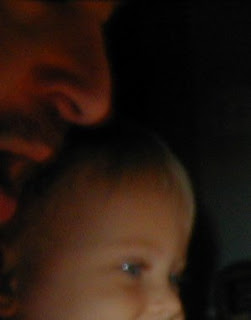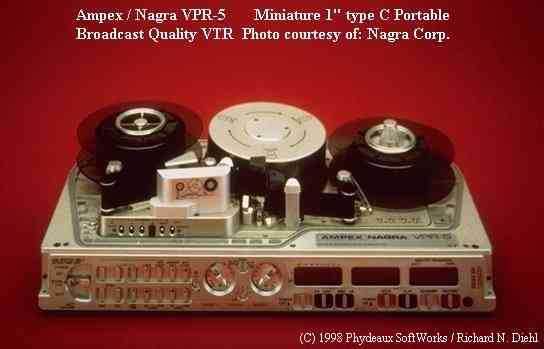The most interesting discussion on the "Ground Zero Mosque" I've ever seen, doesn't come from any political discourse, but from a Facebook conversation. It all started when a writer friend posted this:
Chris Jones
“Tolerance implies no lack of commitment to one's own beliefs. Rather it condemns the oppression or persecution of others.” JFK
September 20 at 8:03pm · Comment ·LikeUnlike
2 people like this..
Richard M Weiss
Or as my 8th grade social studies teacher, Audrey "Dragon Lady" Bourgeois often said "I disapprove of what you say, but I will defend to the death your right to say it." Thought it was a Audrey original, but who knew from
Voltaire in 8th grade."
Rebecca Gant Bryden
Huh? Both statements are a stretch. If JFK really believed that's what tolerance means, he needed a better speech writer or a better word to make his point.
September 20 at 11:56pm · LikeUnlike.
Richard M Weiss
My quote, with further research actually comes from
Evelyn Beatrice Hall, writing about Voltaire and his "Treatise on Tolerance." Freedom of speech, religion, association, the great democratic principles all spring from it. It's the virtue best defined by the absence of a negative. JFK got it right, but
here's another interesting and supportive take from a citizen soldier in Afghanistan.
Tuesday at 1:05am · LikeUnlike.
Lori O'Konek
Cool discussion. Liked the article you posted Richard. Intriguing.
Tuesday at 6:32pm · LikeUnlike.
Rebecca Gant Bryden
I also appreciated the article, Richard. Thank you. These days tolerance is considered a virtue, while intolerance is a pejorative term. My main concern over the JFK quote is with the word "condemns." I don't think that the word 'toleran...ce' automatically implies condemnation of oppression of anything or anyone except perhaps, passively. I can be tolerant of others, without actually condemning those who are intolerant or persecuting same. To me, condemnation suggests ACTION. It also depends on context. I think that "tolerance" is like the word "brave." If, during WW II, someone had said the German and the Japanese soldiers are "brave," many people at the time would have disagreed and said, "No, Allied soldiers are brave; the enemy soldiers are "fanatics." What may be tolerance or bravery to one person might be intolerance or fanatical to another.
Tuesday at 9:58pm · LikeUnlike.
Richard M Weiss
@Lori, he writes well, that citizen soldier. @Rebecca, I (finally) see your point, but I think JFK was talking about tolerance on two different levels. You as a private citizen in the worlds greatest democracy, can be tolerant and accept diversity without condemning anything. Perhaps that's enough. But in Nazi Germany, many ordinary burghers tolerated the Nazis. It was enough to create systemic intolerance. So yes, context is important.
The second level, as per Voltaire, a government or a leader who doesn't actively condemn oppression tacitly allows intolerance to flourish. As a private citizen in theocratic, monarchistic Europe, Voltaire, a private citizen felt it his clear duty to actively condemn. His writings are at the very core of democratic thinking and he paid a high price for his bravery which the church and several heads of state called treason and heresy.
The second level, as per Voltaire, a government or a leader who doesn't actively condemn oppression tacitly allows intolerance to flourish. As a private citizen in theocratic, monarchistic Europe, Voltaire, a private citizen felt it his clear duty to actively condemn. His writings are at the very core of democratic thinking and he paid a high price for his bravery which the church and several heads of state called treason and heresy.
Tuesday at 10:51pm · LikeUnlike · 1 personLoading....
Chris Jones
When I posted it I was thinking of tolerance for a mosque near ground zero in NYC. FYI.
Tuesday at 11:20pm · LikeUnlike.
Chris Jones
And I love having a thoughtful discussion about the meaning of a word. :-)
Tuesday at 11:26pm · LikeUnlike.
Richard M Weiss
I knew that's where you were going CJ. I'm not crazy about the Cordoba Center's location, but in the spirit of JFK, Voltaire and EB Hall, I can not just tolerate it, but insist that it must be built, if only because such tolerance tests, defines and strengthens a democracy.
Rebecca Gant Bryden
Richard; Chris, I’ve appreciated this discussion. In 1930s Germany, good people tolerated the evil inflicted by Nazis out of fear for their lives if they protested. That’s understandable, but the price for them and the world was very high.... I also thought of the mosque issue during this discussion. Obviously, if the mosque is built, people must be tolerant of it, but just because someone has the right to do something, which in this case is not disputed, it doesn't follow that it's a good, kind, wise, or moral thing to do.
Aside from questions about source funding for the mosque as well as inflammatory past statements made by the imam, I think that building a mosque so close to GZ is an immoral provocation because it inflicts needless additional pain on survivors, families, a city, and a country. Frankly, I don’t think that intolerance of Islam has much to do with it, given that there are over 100 mosques in NYC and hundreds more throughout the country that people are not protesting.
That pastor in Florida who threatened to burn the Quran was within his constitutional right of freedom of speech, but I didn’t hear pleas for tolerance of his rights by anyone. Most people rightly saw it as a very bad and destructive idea and not representative of the vast majority of Christians, let alone Americans. Not everything that is a constitutional right is moral. It’s always a judgment and most often a political call and good people can disagree. But people have a constitutional right to protest decisions, and unfortunately the common practice of labeling others one disagrees with as “intolerant,” or “Islamaphobic,” or “bigoted” or “un-American” or “racist” or “sexist” or “homophobic”—depending on the issue—also smacks of intolerance. If people seem intolerant about a public policy, there could be valid and debatable reasons for it.
Wednesday at 6:20pm · LikeUnlike.
Chris Jones
I just believe that people should be able to build their church/synagogue/mosque/chapel wherever they want (if they can afford it).
I am not into labels. I would hope that 9/11 survivor families can separate radical Islam from real Islam. A...nd I hope that Muslims can separate the real Christians from the nut job church pastor who wanted to burn the Quran. Same. Same.See More
Wednesday at 9:53pm · LikeUnlike.
Richard M Weiss
At what point do you stop being good if you passively tolerate systemic evil? This is why Kennedy's definition of tolerance is on the money, because being good and tolerant, at some point, involve action against evil. Toleration is passive in the face of evil where tolerance is active. Thomas Paine said 'It is the duty of every patriot to protect his country from its government.' and "'Tis the business of little minds to shrink; but he whose heart is firm, and whose conscience approves his conduct, will pursue his principles unto death." The Tea Partiers who love Payne, grossly misunderstand him and distort his intent.
Imam Rauf has shown himself to be the poster boy of moderate, inclusive Islam, but I think he represents the leading/liberal edge of Islam, not its center and certainly not its extreme. Islam as a whole has a lot of growing up to do and Rauf is the rare guy to lead that charge. His stated intention is inclusion, not provocation. Cordoba hearkens back to Cordoba, Spain, where all 3 faiths flourished/pre-Crusades, in harmony. His brand of Islam deserves American support because its compatible with our values of tolerance.
Pastor Terry Jones (no relation, right cj?) has shown himself to be a extremist crackpot. We are tolerant when we allow him free speech from his dwindling pulpit. Nazis marched in Skokie, IL. KKK congregated throughout the South. Don't have to like them to be tolerant of their right to free speech and peaceable assembly. But society has a right to recourse when they shit on Torahs or burn black churches. The Constitution sprung from moral principles which convey moral standing to our rights, but not to every exercise of them.
If we tolerated Jone's holy book burning, it would be like tolerating the nut who yells fire in a theater. His intent was to anger and insult. Nothing peaceable about it. Yet he was not arrested or thrown in jail. I wonder who bought him off.
Wednesday at 10:57pm · LikeUnlike.
Chris Jones
You should have been a lawyer. ;-)
7 hours ago · LikeUnlike.
Richard M Weiss
Which one of us CJ? I'm just a liberal, patriot and closet semanticist. Okay, I guess out of the closet ;-) I'll bet Rebecca shares at least two of those three qualities. I think one thing we can all agree on is that these are the kinds of thoughtful conversations we wish our "leaders" were having, instead of the mass hysteria sound biting that serves as public discourse. Gotta love FB. Gotta see the movie. Cheers all!
2 minutes ago · LikeUnlike


















